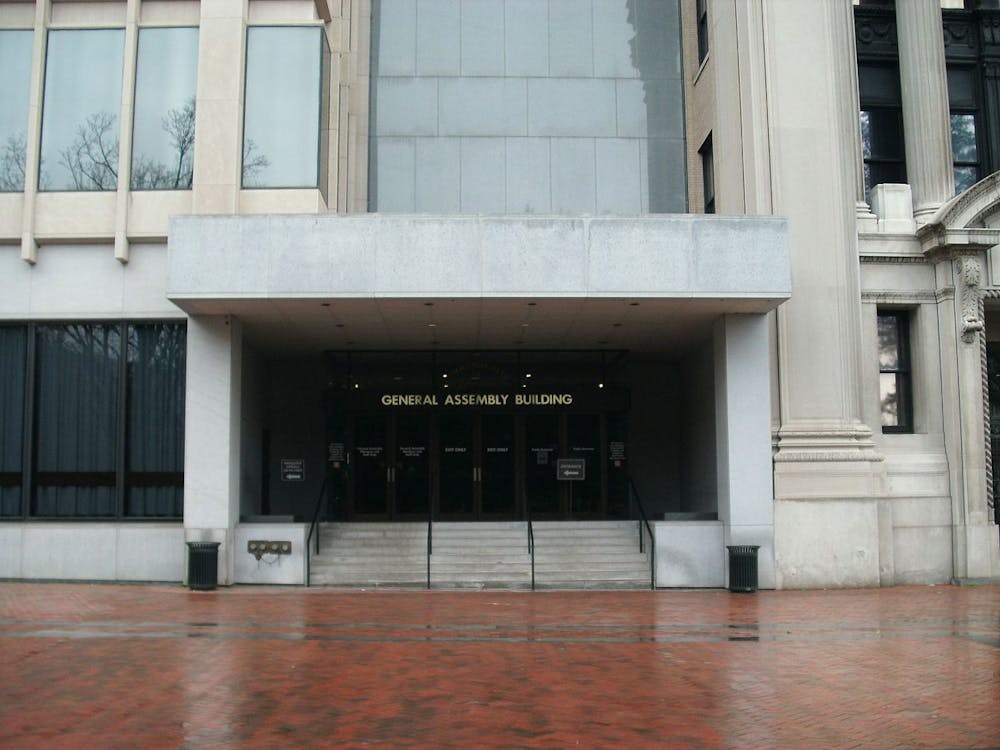The Board of Visitors is the governing body for the University of Virginia. Its tasks include setting the budget and maintaining the traditions of student self-governance, like the Honor System. However, after Gov. Glenn Youngkin’s controversial appointment and subsequent confirmation of Bert Ellis, the Board has garnered much criticism in recent months. Ellis’ confirmation exemplifies the problem with the Board’s structure. Despite many students clearly not wanting Ellis to serve on the Board, they had no power to stop his confirmation. The disenfranchisement of student voices needs to stop. We should have a say over who governs us. Students should have a vote to confirm Board appointees, rather than the State Assembly, giving students the final say on individuals who are tasked with making important decisions that affect our day to day lives.
Currently, the governor appoints members to the Board who are then confirmed by the General Assembly. Students voting to confirm Board members can run parallel to the process currently in place, with a few key exceptions. Potential voting members of the Board should still be appointed by the current governor, and they should still be eligible for the same four-year terms. Instead of being confirmed by the State Assembly, however, appointees should be confirmed by students at the University. Voting should be done in person, and it should happen in concurrence with the usual student elections that take place in the spring. Since the Governor usually makes appointments in the summer, this will give students ample time to learn about the appointees. To ensure that students know enough about the Board and the appointees to be educated voters in this confirmation process, town halls and other community learning opportunities should become a prerequisite to vote — also encouraging student buy-in to the higher leadership of the University.
For example, in order to vote for confirmation of Board members, students would have to register through the UBE’s website and then complete a list of requirements. This might include completing an online module about the Board, its history, the power it holds at the University and how it operates. Next, students would attend at least one scheduled town hall with appointees and complete digital modules created by the appointees to understand their platforms and ideas for the University. Upon completion of these tasks, students would then be eligible to vote for or against the confirmation of the Governor’s appointees. Students should be required to register with the University to vote within the first two months after the Governor submits nominations. The University Board of Elections would oversee this confirmation process to ensure that it is accessible to all students who complete the requirements.
If students were to not confirm a Board appointee through simple majority, then the Speaker of the Virginia House of Delegates should nominate someone and the individual should be confirmed by a super majority of the State Assembly. As Virginia is a state school, it would make sense that elected officials from across the state would retain the right to appoint individuals to the Board and ultimately decide to confirm those individuals, if students are unable to do so.This process would prevent an endless loop of appointments and denials while avoiding the nomination of extreme candidates and still giving all students a primary role in deciding who gets to govern them. Admittedly, voter turnout in University-wide elections has been historically low but the significance of the Board’s power is unquestioned, so buy-in will not be as difficult as it might be for student self-governance.
The Board oversees the strategic planning of the University as a whole, as well as licenses the operation of organizations like the Honor committee and the University Judiciary Committee. They maintain power over thousands of students and faculty. Being represented by state officials who get to take part in the current confirmation process is simply not enough — in-state students’ voices are not guaranteed to be heard, even when they call upon their representatives to act on their interests. Additionally, out-of-state students and international students are even more disenfranchised by the lack of direct representation, since many don’t vote for the elected representatives in the State Assembly.
Since the Board makes decisions that affect all of us — like budgets and tuition rates — all students must have a say in deciding who sits at the table. Inviting students into the confirmation process is the perfect way to give students the agency they deserve. The Board of Visitors cannot allow voices to go unheard or unrepresented any longer, especially those voices most impacted by their actions. With Ellis officially confirmed, we have already seen the damage that the University suffers when students and faculty are denied power. With a new voting procedure in place, the fate of our governance will be placed back in the proper hands — the hands of every student.
Riley Lorgus is an Opinion Columnist who writes about Administration and University life for The Cavalier Daily. He can be reached at opinion@cavalierdaily.com.
The opinions expressed in this column are not necessarily those of The Cavalier Daily. Columns represent the views of the authors alone.







